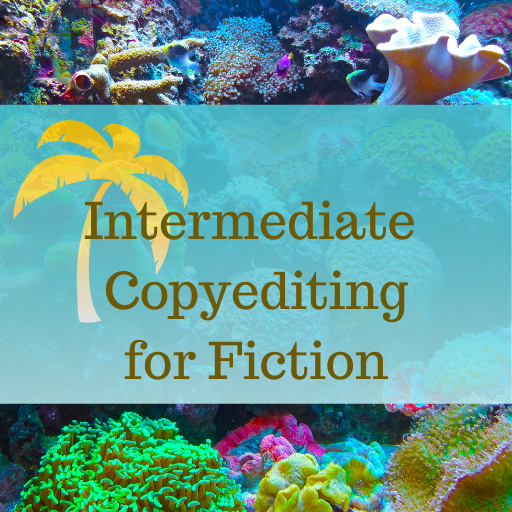Effective Copyediting
How can I provide effective copyediting to authors?
The most effective copyediting must include an improvement and be intended to address an important issue.
Sometimes when you’re copyediting a novel, you’re asked to do a medium- or heavy-level copyedit, which means you’ll be doing more than just the basics of ensuring the ms conforms to style and is free of typos and other errors.
You’ll also be smoothing out the prose, helping the author fix problems like head-hopping, and deleting info-dumping (the overuse of exposition in a novel).
But copy editors have a tendency to think that “there’s a different way to write this” is the same thing as “there’s a better way to write this.”
Those are two different things.
Delivering Effective Copyediting
To make sure any edit is effective it has to be both (1) an improvement and (2) intended to address an important issue.
Improvement means that you have identified the issue with a sentence/paragraph, not because you think your solution “sounds” better or because you heard about a rule somewhere and you’re applying it without understanding it.
Take, for example, the sentence “The children ran into the house and closed the door loudly.” An inexperienced copy editor might think, “Aha! One should reduce the use of adverbs” and therefore edit the sentence to say “The children ran into the house and closed the door.”
But in that case, the editor has changed the meaning of the sentence without improving the sentence. The children didn’t just close the door; they closed it in a certain way: loudly.
A more experienced editor might think, “A stronger verb would communicate the information more vividly” and edit the sentence to say “The children ran into the house and slammed the door.” That’s an improvement.
Important means your solution corrects an error, makes a detectable difference in readability, or reduces the potential for confusion.
For example, if you can’t tell which character is speaking in a passage of dialogue, it’s important to address that issue.
That you think “scarlet” is a better word than “crimson” for that particular shade of red is not important.
That you know the phrase is “toeing the line” and not “towing the line” is important. One is incorrect and the other is not.
When your edits include revising sentences always ask: “Is this edit important AND does it improve the sentence?”
Tips for Editors & Writers
-
Effective Copyediting
How can I provide effective copyediting to authors? The most effective copyediting must include an improvement and be intended to address an important issue. Sometimes when you’re copyediting a novel, you’re asked to do a medium- or heavy-level copyedit, which means you’ll be doing more than just the basics of ensuring the ms conforms to…
-
The Fine Art of Copyediting Fiction
Let’s talk about the fine art of copyediting fiction, what it means and insight into perfecting the art with integrity. Fine Art of Copyediting: When the Editor & Author’s Opinions Differ When copyediting fiction, it’s common to run up against issues that pit author preference against standard editing approaches. For example, in a story I…
-
Making Editorial Decisions in a Copyedit
A book editor needs to get comfortable making editorial decisions in a copyedit. Don’t shift the editorial burden back to the author. Copyediting requires decision-making Obviously, we can’t ask the author to make decisions about every question we have when we’re editing. This is inefficient as it takes time to ask the question and get…
Join the Club!
New to story editing? Begin at the beginning.


